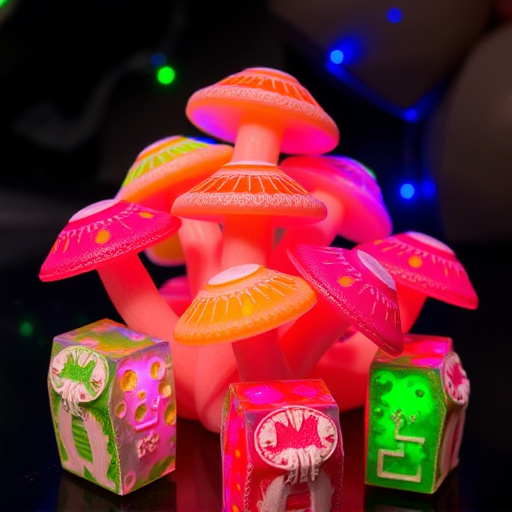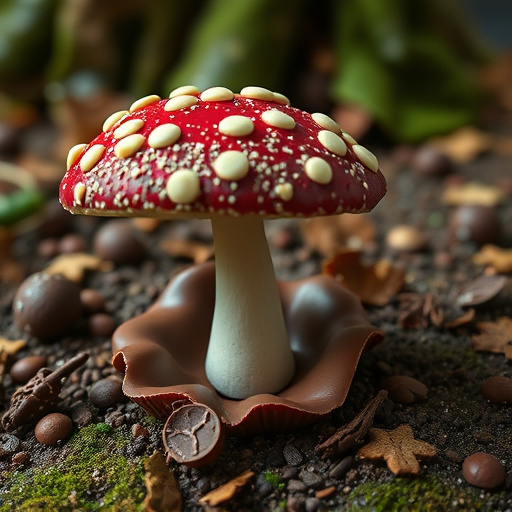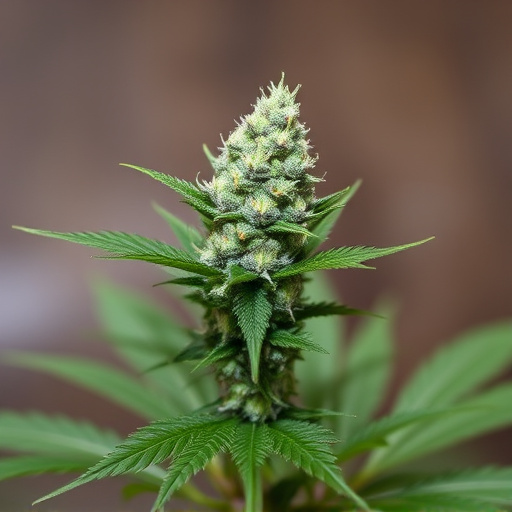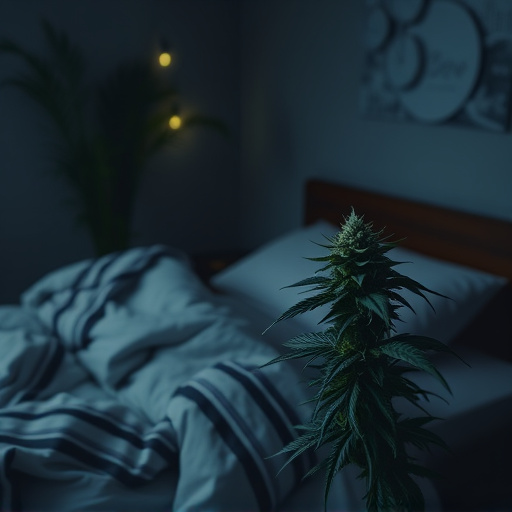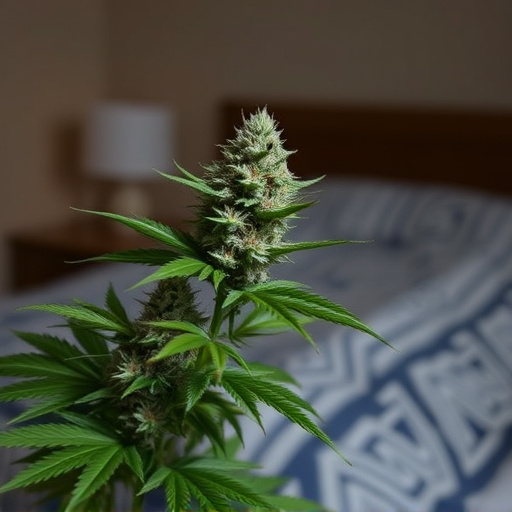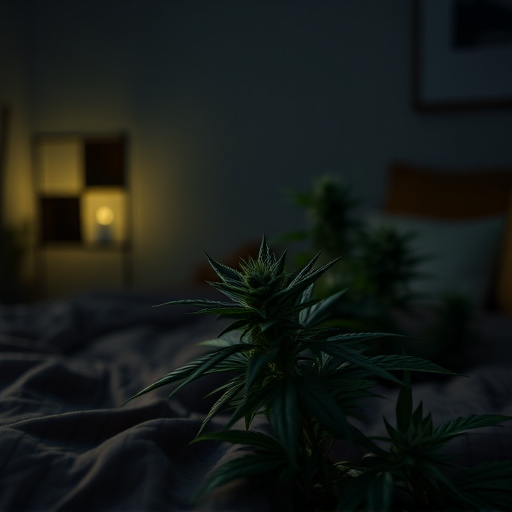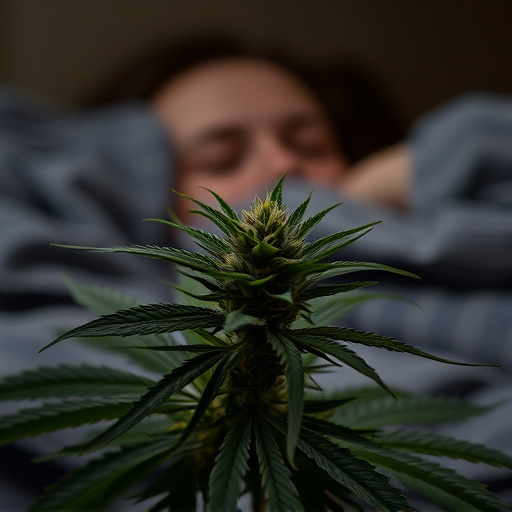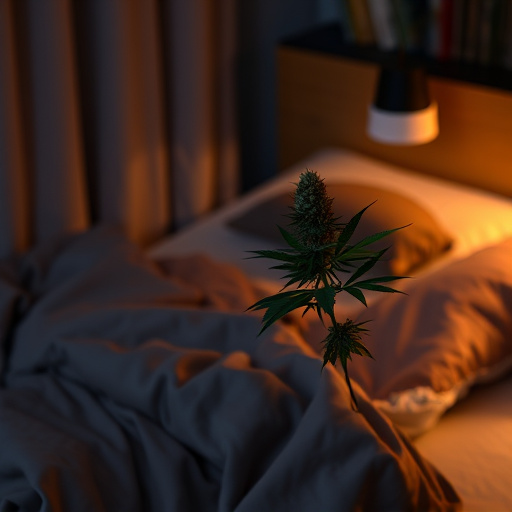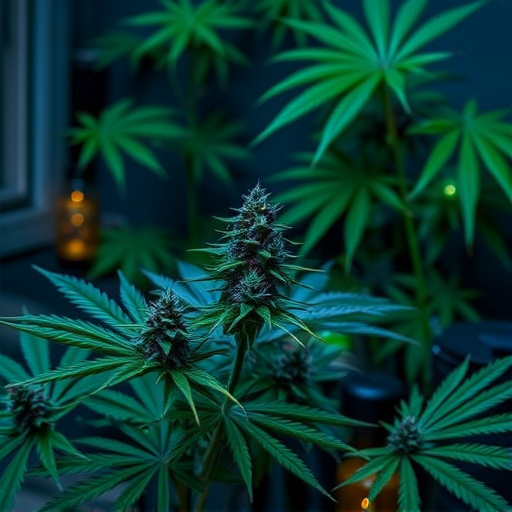Cannabis, especially high-THC strains, can temporarily ease or worsen insomnia due to its effects on sleep patterns and anxiety levels. However, CBD-rich cannabis strains show promise as natural remedies for chronic insomnia, offering potential benefits without cognitive issues or increased anxiety. Due to individual variations and potential mental health impacts from long-term use, consulting healthcare professionals before incorporating cannabis strains for insomnia into a routine is essential.
“Smoking weed, or using cannabis, may offer temporary relaxation but it’s crucial to understand its side effects, especially on sleep and mental health. This article delves into the potential short-term impacts of cannabis on sleep and insomnia, while exploring its chronic effects over time. We also dissect the role of various cannabis strains in alleviating insomnia, drawing insights from scientific research. By understanding these aspects, users can make informed decisions regarding their well-being.”
- Potential Short-Term Effects of Cannabis on Sleep and Insomnia
- Long-Term Use: Chronic Impacts on Sleep Patterns and Mental Health
- Exploring Cannabis Strains for Insomnia Relief: What Science Says
Potential Short-Term Effects of Cannabis on Sleep and Insomnia

Smoking weed, or consuming cannabis, can have various short-term effects on sleep and may even contribute to or exacerbate insomnia. The active compounds in cannabis, particularly tetrahydrocannabinol (THC), interact with the endocannabinoid system in the brain, which plays a role in regulating sleep-wake cycles. While some individuals report feeling more relaxed and drowsy after using cannabis, this effect is often temporary and can lead to disrupted sleep patterns. High THC content in certain cannabis strains for insomnia may cause increased anxiety, paranoia, and difficulty falling asleep, making it counterproductive for those seeking relief from sleep issues.
The impact of cannabis on sleep can vary depending on the strain used, dosage, and individual tolerance. Some cannabis strains marketed for insomnia contain higher levels of cannabidiol (CBD), which has minimal psychoactive effects and is known to have calming properties. CBD may help reduce anxiety and promote relaxation without disrupting sleep architecture, allowing users to achieve a deeper and more restorative sleep. However, it’s essential to consult with healthcare professionals or sleep specialists before incorporating cannabis strains for insomnia into any routine, especially if you have pre-existing sleep disorders or medical conditions.
Long-Term Use: Chronic Impacts on Sleep Patterns and Mental Health
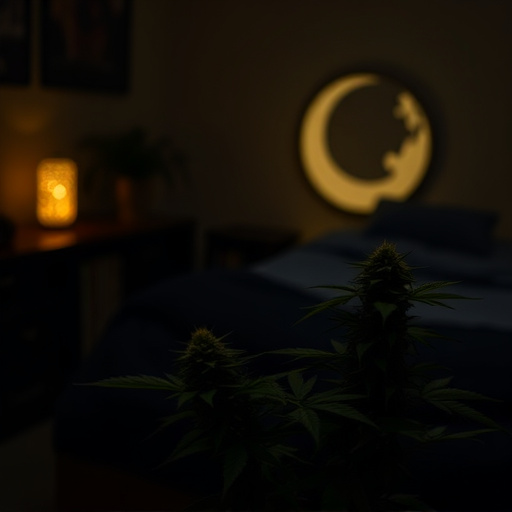
Long-term use of cannabis, particularly for recreational purposes or as a habit, can have significant impacts on sleep patterns and mental health. While some individuals may find temporary relief in certain cannabis strains for insomnia, regular consumption can disrupt natural sleep cycles, leading to chronic sleep deprivation. This can result in a range of issues such as difficulty concentrating, memory problems, and mood disturbances.
The effects on mental health are also noteworthy. Regular marijuana use has been linked to an increased risk of developing psychotic disorders, particularly in individuals with a predisposition towards these conditions. Furthermore, long-term exposure may exacerbate existing mental health issues, making it crucial for users to understand the potential consequences and consider healthier alternatives for managing sleep problems.
Exploring Cannabis Strains for Insomnia Relief: What Science Says
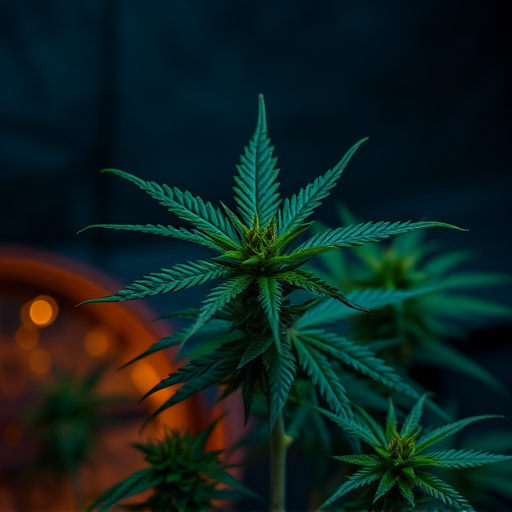
Many people turn to cannabis as a natural remedy for sleep difficulties, particularly insomnia. The science behind this trend is growing, with studies exploring the potential benefits of specific cannabis strains for improving sleep quality. Certain strains, known for their high levels of cannabidiol (CBD) and low tetrahydrocannabinol (THC) content, have shown promise in treating insomnia without causing cognitive impairment or anxiety.
Research suggests that CBD interacts with the body’s endocannabinoid system to regulate sleep-wake cycles, potentially offering a safe and effective alternative for those struggling with chronic insomnia. While more studies are needed, early findings indicate that specific cannabis strains could be valuable tools for improving rest and relaxation, providing much-needed relief for individuals experiencing sleep disorders.
While cannabis strains for insomnia show promise, it’s crucial to understand both the potential benefits and side effects. Short-term use may lead to sleep improvements, but chronic use can disrupt sleep patterns and mental health. Exploring different cannabis strains should be informed by scientific research, considering individual tolerances and seeking professional guidance. Remember that finding relief is possible, but balance and awareness are key to a healthy relationship with cannabis.

